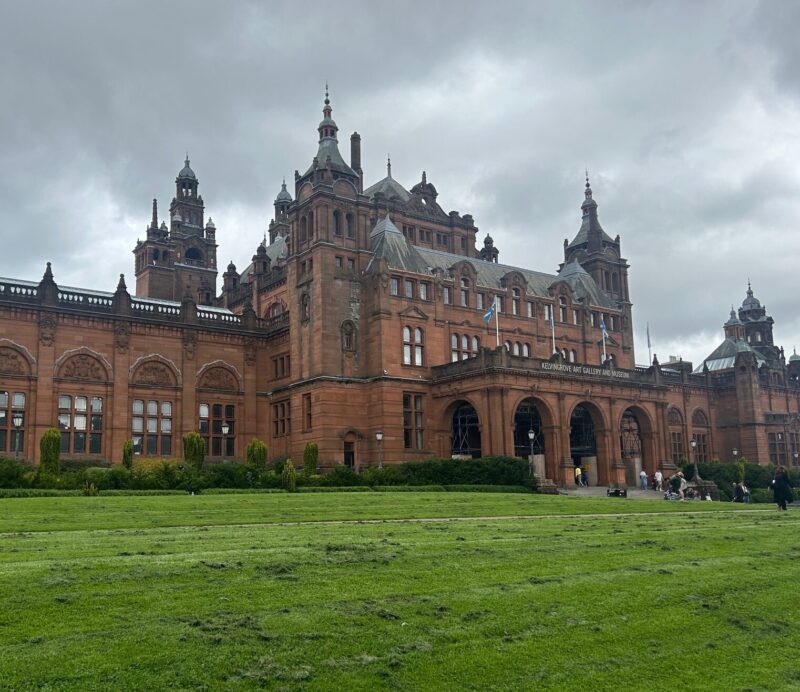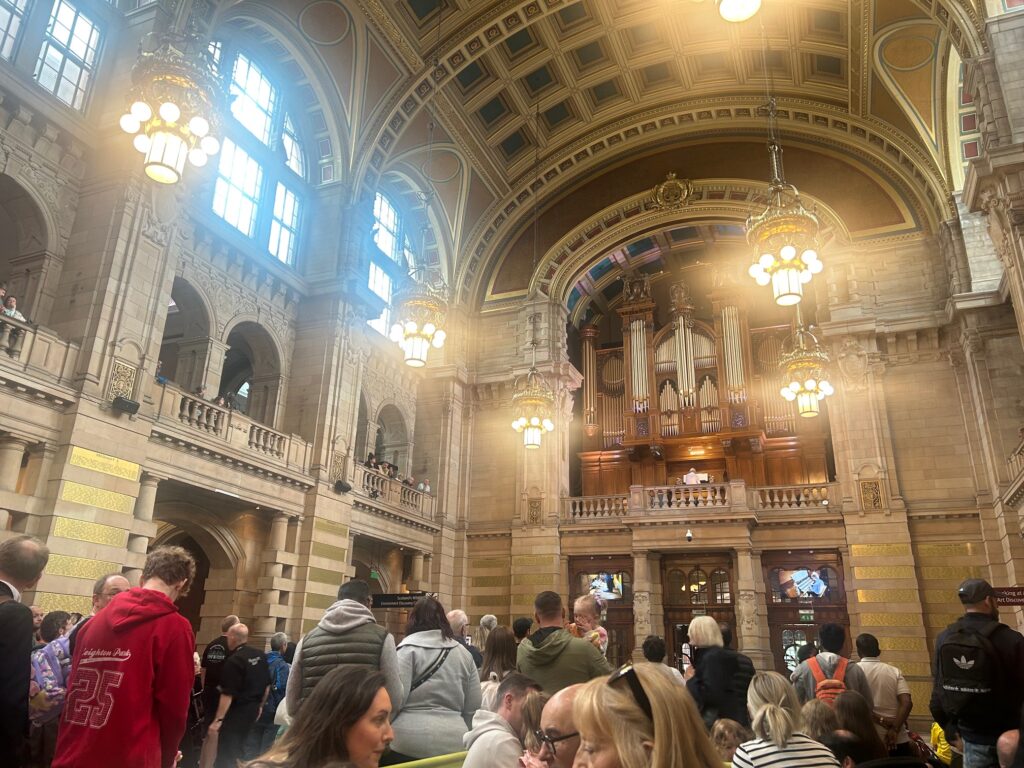Posted on 31st July, 2025 in Blog posts
Kelvingrove Museum is enslaved to prejudice

It is a very beautiful museum full of stimulating artefacts, and the day we went there was an organ recital too.
Alas. my visit was blighted by seeing a large board encouraging us to feel guilty about slavery, as if slavery were somehow a particularly Scots sin, whereas the very opposite is the case. Lord Kames, who outlawed slavery in Scotland, and his fellow Scot and judge, Mansfield, who did so in England, gets no mention at Kelvingrove. The thinkers of the Scottish Enlightenment, who gave to the world a new understanding of humanity, are marginalised. The 19th century explorer Livingston gets a mention, but not the fact that he was motivated by a hatred of slavery and revulsion at the cruel practices of African rulers.
Of all the achievements of the British Empire, the epitome is our record on slavery. The British were the first peoples in history to close down a barbarous international practice known for thousands of years. Under the Romans, Angles were particularly prized; in the 9th and 10th centuries, the Celts of Ireland and Scotland were seized by Danes and sold far into southern Europe. Arab enslavers enriched themselves in biblical times and continue their filthy practices today, though much more discreetly.
In the 16th century, unscrupulous Britons, as well as other Europeans, were introduced to this lucrative business by African rulers. From 1525 to 1866, 12.5m were transported to the Americas, while maybe as many as 17m went to Arab countries.[1] Why are the heirs of those enslaved in the Arab world not calling for reparations, as are those of the USA? Because there were no descendants. African slaves taken to Arab countries were all castrated so that they would leave no trace.[2] That slave trade was genocidal.
Today’s polemicists talk of slaves as if they were exclusively black, but for centuries, there were probably at least as many white slaves as black.[3] If reparations are to be paid to descendants of slaves transported to the USA, they should also be paid to those communities whose youths were seized in Europe and the Caucasus. And how about Denmark, Italy and the Arab countries paying up? And surely the descendants of those African rulers who made markets of their own people, should be found and made to pay?
More just would be to invest such resources in helping modern slaves. It is said that there are 200 million of them. Slavery is particularly prevalent in much of Africa, India and Russia.[4] It is managed mainly by Arab and African traders.[5]
After legal abolition in 1791, British authorities inaugurated an operation to suppress the trade worldwide, which lasted 150 years. Royal Navy patrols prevented shipments and rescued captives; taxpayers’ money was used to buy off British slave owners, Arab traders and African rulers alike, once they committed to ending the practice. They resisted, and so did the United States.
It has been claimed that the wealth of our nations was founded on slavery.[6] The reality is that it was insignificant to the development of the British economy.[7] Some families and places became rich from it, especially those which were compensated for lost business when forbidden to trade. However, the industrial revolution was not fuelled by the slave trade, nor even by exports. It came about because, long before the participation of a few Britons in the slave trade, their country was wealthier and more welcoming to ingenuity and enterprise than anywhere else.[8]
[1] Different scholars give different figures, sometimes as high as 17 million before the 20th century. The Wikipedia entry suggests 11.5–15 million. Also see Thomas, Gordon (1990) Enslaved: Investigation into Modern-Day Slavery London: Bantam Press.
[2] https://www.fairplanet.org/dossier/beyond-slavery/forgotten-slavery-the-arab-muslim-slave-trade/, accessed 010523
[3] For an account of white slavery in the 18th century, see Milton, Giles (2005) White Gold: The Extraordinary Story of Thomas Pellow and North Africa’s One Million European Slaves London: Hodder & Stoughton
[4] https://www.ijmuk.org/modern-slavery-and-trafficking?gclid=EAIaIQobChMIleSJ45z0-gIVEu7tCh0vKAmoEAAYBCAAEgISKvD_BwE, accessed 221022. Also see Thomas, Gordon (1990) Enslaved: Investigation into Modern-Day Slavery.
[5] https://time.com/longform/african-slave-trade/, accessed 060823
[6] On this, see https://historyreclaimed.co.uk/did-slavery-make-britain-rich-decolonisation-and-progressive-masochism/, accessed 191122.
[7] Landes (1998) The Wealth and Poverty of Nations, pp119-20
[8] Dispassionately conveyed evidence is to be found in Biggar (2021) Colonialism: A Moral Reckoning, pp342 and 348.
